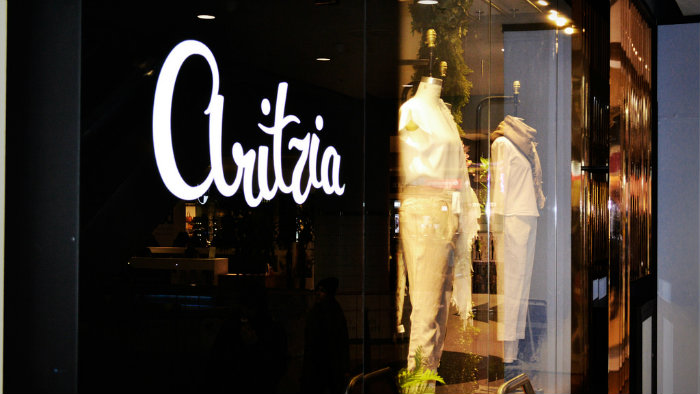Hidden about three-quarters of the way down the page in the January 9th press release was the admission by Aritzia Inc. (TSX:ATZ) that it lost $8.1 million in the third quarter ended November 27, 2016. Following the tried-and-true investor-relations tactic of putting the good news up front, the Vancouver-based specialty retailer raved about its Q3 sales performance instead.
It was standard stuff, really.
Fool.ca contributor Joey Frenette isn’t having any of it, suggesting Aritzia shareholders should dump its stock immediately. While I’m no fan of the overpriced women’s clothing chain, I think it’s important for investors to understand a few things about Aritzia before throwing ATZ stock overboard.
It’s still above its IPO price
Although ATZ is down about 2.3% so far in 2017, it’s still trading above its October IPO price of $16. While I’ve written in the past about the fact it’s common for IPOs to trade below their initial price within 12-24 months of going public, in the three-and-a-half months it’s been a public company, Aritzia stock has never breached $16; in fact, $16.50 is its low with a high of $19.40.
Comps are strong
Retail businesses of every description are finding the current business climate both here in Canada and down in the U.S. anything but positive. Department stores are especially weak at the moment. Hudson’s Bay Co just announced reduced guidance on its holiday sales, sending its stock below $10 for the first time since it went public in 2012.
Even detractors like myself have to give credit where credit is due.
Aritzia’s Q3 2017 comparable-store sales growth was 15.2% which is on top of 15.4% in Q3 2016. It also said December comps were up 12.9%.
Almost nobody in retail is generating double-digit comps at the moment, so it’s clear Aritzia’s business is still in very good shape.
Secondary offering
This company announced January 10 that it was selling a total of 24.9 million subordinate voting shares in a secondary offering that will see certain shareholders and employees receive $435 million, or $17.45 per share.
Frenette sees the sale of shares so early in the game as a sign insiders are less than confident about Aritzia’s future; that’s one way of looking at it. However, in my experience, insiders sell stock for all kinds of reasons, few of which have to do with the condition of the business itself. After all, everybody has bills to pay.
Generally, the standard lock-up agreement for the sale of shares is 180 days. In this case, the underwriting syndicate led by CIBC Capital Markets has waived this requirement, which suggests to me that institutional investors are hungry for more shares to hit the market.
That’s got to be seen as a positive for Aritzia stock.
It actually made money
Once you exclude the IPO and stock-based compensation costs, Aritzia’s adjusted net income was $27.5 million in the third quarter — 44.7% higher than in the same quarter a year earlier.
Gross margins, a big part of how retailers make money, increased by 320 basis points to 44.1% in the third quarter. That’s a significant improvement from a year earlier. By comparison, Lululemon’s gross margins in the third quarter ended October 30, 2016, were 51.0% — 410 basis points higher than a year earlier.
So, while Aritzia still can’t hold a candle to Lululemon, it is making up ground.
Aritzia is uninvestable
Back in August, Kevin O’Leary appeared on BNN and talked about Aritzia’s plans to go public. In that appearance, he said the dual-class share structure made the stock uninvestable for him — and probably for many other institutional investors as well.
I get the argument against dual-class share structures, but from where I sit, companies that falter who happen to be controlled by a family or person through the use of a dual-class share structure has less to do with the voting structure and more to do with failing to execute its business plan.
Long term, Aritzia is not going to fail because it’s got a dual-class share structure, it’s going to fail because consumers come to realize its clothing provides little value when compared to other retailers operating today.
Bottom line
A decision to sell Aritzia stock isn’t as clear cut as you might think. While I wouldn’t own it, the five points above are all reasons why now might not be the best time to do so.








